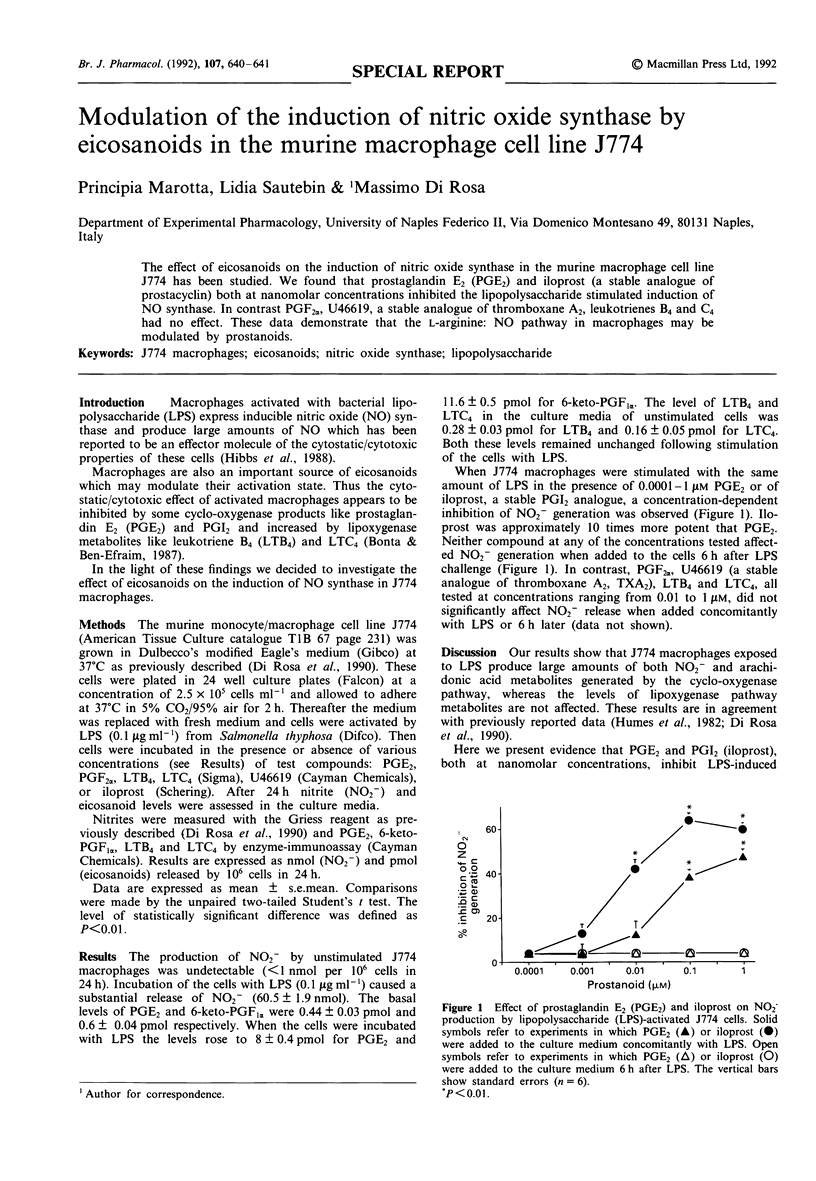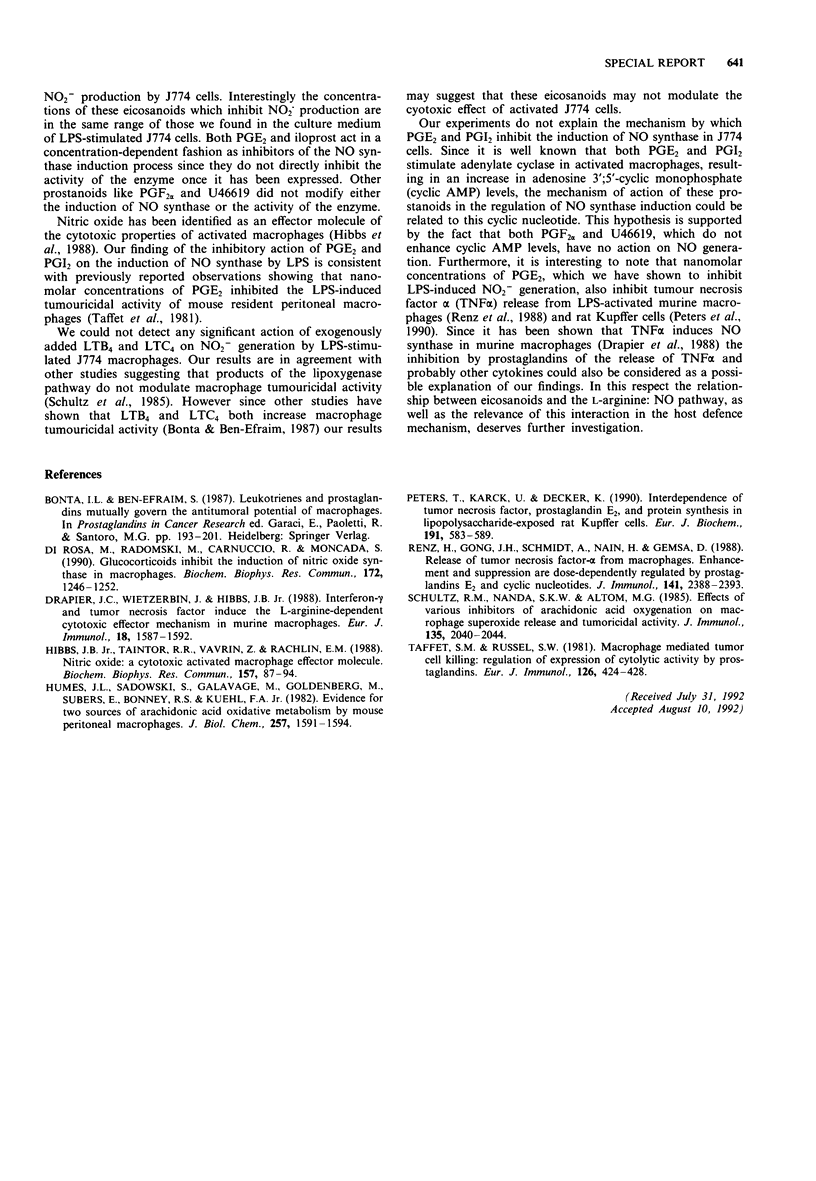Abstract
The effect of eicosanoids on the induction of nitric oxide synthase in the murine macrophage cell line J774 has been studied. We found that prostaglandin E2 (PGE2) and iloprost (a stable analogue of prostacyclin) both at nanomolar concentrations inhibited the lipopolysaccharide stimulated induction of NO synthase. In contrast PGF2 alpha, U46619, a stable analogue of thromboxane A2, leukotrienes B4 and C4 had no effect. These data demonstrate that the L-arginine: NO pathway in macrophages may be modulated by prostanoids.
Full text
PDF

Selected References
These references are in PubMed. This may not be the complete list of references from this article.
- Di Rosa M., Radomski M., Carnuccio R., Moncada S. Glucocorticoids inhibit the induction of nitric oxide synthase in macrophages. Biochem Biophys Res Commun. 1990 Nov 15;172(3):1246–1252. doi: 10.1016/0006-291x(90)91583-e. [DOI] [PubMed] [Google Scholar]
- Drapier J. C., Wietzerbin J., Hibbs J. B., Jr Interferon-gamma and tumor necrosis factor induce the L-arginine-dependent cytotoxic effector mechanism in murine macrophages. Eur J Immunol. 1988 Oct;18(10):1587–1592. doi: 10.1002/eji.1830181018. [DOI] [PubMed] [Google Scholar]
- Hibbs J. B., Jr, Taintor R. R., Vavrin Z., Rachlin E. M. Nitric oxide: a cytotoxic activated macrophage effector molecule. Biochem Biophys Res Commun. 1988 Nov 30;157(1):87–94. doi: 10.1016/s0006-291x(88)80015-9. [DOI] [PubMed] [Google Scholar]
- Humes J. L., Sadowski S., Galavage M., Goldenberg M., Subers E., Bonney R. J., Kuehl F. A., Jr Evidence for two sources of arachidonic acid for oxidative metabolism by mouse peritoneal macrophages. J Biol Chem. 1982 Feb 25;257(4):1591–1594. [PubMed] [Google Scholar]
- Peters T., Karck U., Decker K. Interdependence of tumor necrosis factor, prostaglandin E2, and protein synthesis in lipopolysaccharide-exposed rat Kupffer cells. Eur J Biochem. 1990 Aug 17;191(3):583–589. doi: 10.1111/j.1432-1033.1990.tb19161.x. [DOI] [PubMed] [Google Scholar]
- Renz H., Gong J. H., Schmidt A., Nain M., Gemsa D. Release of tumor necrosis factor-alpha from macrophages. Enhancement and suppression are dose-dependently regulated by prostaglandin E2 and cyclic nucleotides. J Immunol. 1988 Oct 1;141(7):2388–2393. [PubMed] [Google Scholar]
- Schultz R. M., Nanda S. K., Altom M. G. Effects of various inhibitors of arachidonic acid oxygenation on macrophage superoxide release and tumoricidal activity. J Immunol. 1985 Sep;135(3):2040–2044. [PubMed] [Google Scholar]
- Taffet S. M., Russell S. W. Macrophage-mediated tumor cell killing: regulation of expression of cytolytic activity by prostaglandin E. J Immunol. 1981 Feb;126(2):424–427. [PubMed] [Google Scholar]


